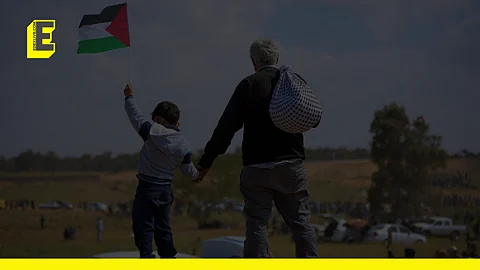

It has been over one year since Israel’s “retaliatory” war on the Gaza Strip began, following an attack by the Islamic Resistance Movement or Hamas on October 7, 2023, which claimed the lives of 1,139 people, including 695 Israeli civilians — with some being as young as 10 months old.
Since then, over 43,000 civilians in Palestine — most of whom were women and children — along with about 146 journalists, 120 academics, and over 224 humanitarian aid workers were killed in the Israeli invasion of Palestine.
In addition, Israel’s military onslaught left nearly 60 per cent of the buildings in the Gaza Strip, which includes schools, educational institutions and hospitals destroyed. Several academics, peace activists and human rights groups, including the United Nations Human Rights Council, accused Israel of committing genocide in the Palestinian territories it occupied.
With calls for a ceasefire and ending Israel’s occupation of Palestine, students, activists, academics, and peace groups around the world protested against Israel’s military onslaught and urged countries such as the United States of America, the United Kingdom, France, and Germany to stop providing Israel with military aid and diplomatic immunity.
As Israel’s war against Hamas goes on in the Gaza Strip and has extended to Lebanon, Iran and Yemen, the International Criminal Court issued arrest warrants for Israeli Prime Minister Benjamin Netanyahu, former Israeli Minister of Defense Yoav Gallant, and Hamas Commander Mohammed Dief, who was reportedly killed in an Israeli airstrike.
These developments in the Middle East over the past year beg the question: How did we get here? What is the conflict between Israel and Palestine all about?
To help understand this, the Middle East Insights Platform, a YouTube channel devoted to explaining the political developments in the Middle East, has introduced a course titled, "The Israel-Palestine Conflict: Historical Roots, Key Developments, and Contemporary Challenges (1917-2024)."
This course, taught by Dr Shubdha Chaudhary, a researcher and expert on West Asian Politics, aims to give its learners an understanding of the “Israel-Palestine conflict”, from its origins in the 20th century till date.
Chaudhary, who has a PhD from Jawaharlal Nehru University (JNU), has worked extensively across Egypt, the West Bank, Saudi Arabia, the US, the UK, and more. She has also delivered lectures at prestigious universities like Cambridge University and the University of Connecticut.
In the course, learners would receive “a space for empathy and understanding, moving beyond right and wrong to explore the possibility of a shared future,” the description of the course says.
The course would explore the following questions:
What does it mean to call a place "home" when borders keep changing?
How do historical traumas shape generations?
Can peace ever be achieved when identities, histories, and aspirations are so divided?
The course would be taught over a series of Zoom meetings spanned across nine months. Those interested must apply by tomorrow, November 24.
A registration fee of Rs 7,000 would have to be paid by interested candidates to enroll in the course. They would also receive a participation certificate upon completion of over 90 per cent of the course.
